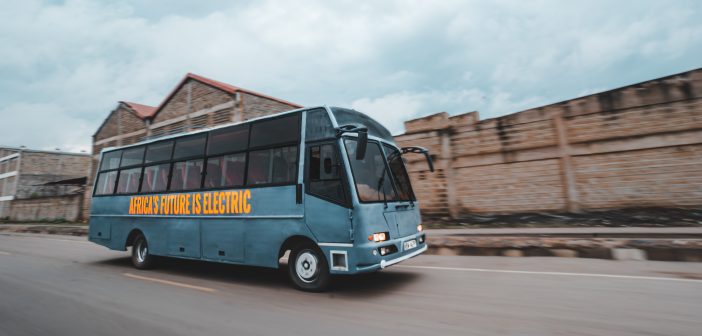Mobility startup Opibus unveils electric bus developed in Africa

Opibus, a mobility startup, has introduced the first all-electric bus in Kenya, as well as the first electric bus designed in Africa.
Opibus, which was founded in 2017, is the leading provider of locally designed and manufactured electric vehicles. Its vision is to develop dependable and cost-effective products for the pan-African mass market.
Late last year, the company raised US$7.5 million in equity and grant funding to help scale its operations, and it has now rolled out its first electric bus in Kenya as the first major step in its plan to provide a locally designed and developed electric bus that can be mass-produced for the pan-African market by the end of 2023.
The bus was designed and developed in-house with the help of local engineering talent and local manufacturing partners. The Opibus proprietary electric vehicle platform, which is modular and can serve as the foundation for a variety of vehicles, is central to the technology. This allows for the development of a bus that is suitable for the African use case in terms of reliability, durability, and price. It also implies that local and global contract manufacturers can be used to develop a globally competitive product with rapid scale-up.
According to Opibus, the bus will be significantly less expensive than importing fully-built electric buses and will outperform its diesel counterpart in terms of performance.
The installation of a powerful motor provides the bus with maximum torque, which improves performance while allowing the driver to accelerate more quickly. Furthermore, because the electric bus lacks a combustion engine and manual gearboxes, no oil, filters, or gaskets must be changed, resulting in an 80% reduction in maintenance costs when compared to a diesel bus.
This first electric bus is expected to hit the market by the middle of this year.
“Following that, the platform will be tested at scale with a commercial deployment of ten buses in the second half of 2022.” In doing so, we ensure that we collect valuable feedback in order to continue developing the product for optimal market fit. “It feels great to be among the first in this very exciting space,” said Dennis Wakaba, Opibus’ project coordinator for public transportation.
The buses will initially be deployed in peri-urban areas surrounding Nairobi Metropolitan. Along with the bus, several charging points from Opibus’ existing product line will be installed. These chargers will be a mix of AC (slow) and DC (fast) chargers; the electric bus will be fully charged in an hour if the fast charger is used.







